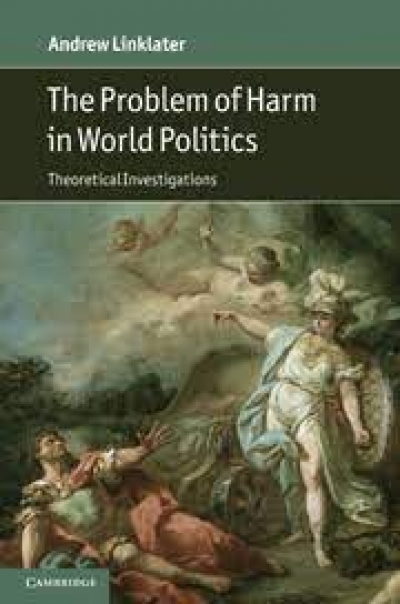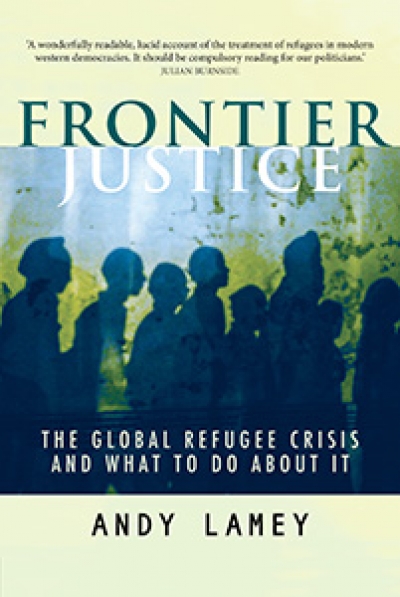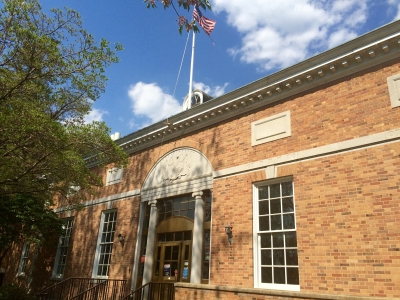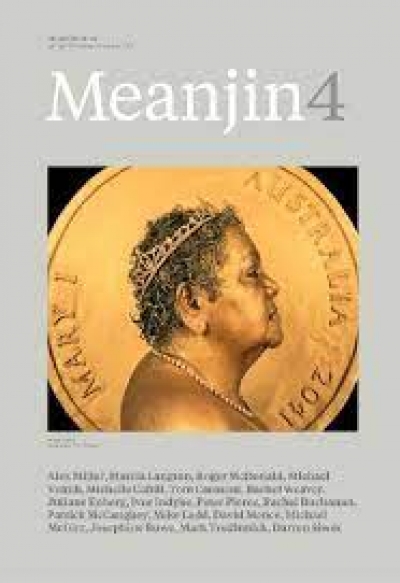Politics
The Problem of Harm in World Politics: Theoretical Investigation by Andrew Linklater
Violent and non-violent harm is endured, inflicted, and internalised by all people at different times, and to varying degrees. It was Cicero who is believed to have first posited that the main obligation human beings have is to refrain from harming one another, and that any unnecessary act of doing so renders that person an enemy of the human race.
... (read more)Frontier Justice by Andy Lamey & Contesting Citizenship by Anne McNevin
Australian advocates of a harsh line against asylum seekers arriving by boat often base their arguments on a concern for the protection of human life. Unless we deter boat people, so the reasoning goes, ever greater numbers will set out on the dangerous voyage from Indonesia, and more and more lives will be lost at sea. This may sound like a novel position, but, as Andy Lamey makes clear in Frontier Justice: The Global Refugee Crisis and What to Do about It, the argument is well worn. In the early 1990s, Presidents Bush Sr and Clinton used similar justifications to defend a policy of intercepting boats from Haiti and returning them directly to Port au Prince, without making any assessment as to whether those on board might have claims to protection from Haiti’s dictatorial régime.
... (read more)The Strongman: Vladimir Putin and the struggle for Russia by Angus Roxburgh
The Western stereotype of the Russian bear has been reborn over the past decade, and Vladimir Putin can take much of the credit. If Hollywood decides to make a movie of John Le Carré’s Smiley’s People, the Russian president, a German-speaking KGB officer, would make an excellent Carla, the master spy.
... (read more)Us and Them: On the importance of animals (Quarterly Essay 45) by Anna Krien
Whether the focus is on Japanese whaling or the slaughter of livestock in Indonesia, the Australian public has strong views on how animals should be treated abroad – less so when the problem is closer to home. Anna Krien’s Quarterly Essay is an incisive narrative account of our ‘nuanced and often contradictory relationship’ with animals: ranging from the live cattle trade to our use of primates in science, to our attempts to control native wildlife populations through cyclical breeding and culling.
... (read more)'Letter from Jaipur: Free speech and sectarian tensions at the Jaipur Festival' by Claudia Hyles
This year’s Jaipur Literature Festival (20–24 January) more than lived up to the Indian Ministry of Tourism’s slogan – ‘Incredible India’.
... (read more)After Words: The Post-Prime Ministerial Speeches by P.J. Keating
As of writing, Australia has six living ex-prime ministers – not quite a record. Of these, one, of course, is still in parliamentary harness, and may still aspire to the top job. Of the remaining five, all but one have provided us with voluminous accounts of their stewardship. The exception is our twenty-fourth prime minister, Paul Keating (1991–96). Not that he has not promised, or rather threatened, such an account, telling his great rival Bob Hawke, ‘if I get around to writing a book, and I might, I will be telling the truth; the whole truth ... [of] how lucky you were to have me to drive the government during your down years, leaving you with the credit for much of the success’. One can imagine how his publishers must salivate at the prospect.
... (read more)The Princeton Post Office, as befits this famed university town, has a certain grandeur. It is small – Princeton is a village after all – and modest in its proportions, but grand in aspiration. As you step through its panelled doors your gaze is drawn by the long parade of milk-glass and bronze lights towards the mural that adorns the far wall. Like the White House murals, it is lofty, but almost domestic in its depictions of American history, American hope, American mythology.
... (read more)Simon Leys is the pen name of the distinguished academic Pierre Ryckmans, who came to notice, first as a sinologist, then as a critic and author. The essays in this collection, composed over more than three decades during which Ryckmans held appointments at the Australian National University and the University of Sydney, cover a wide range of subjects ...
... (read more)The current issue of Meanjin is a forthright one. In her editorial, Sally Heath singles out the contributions of Marcia Langton and Darren Siwes, and with good reason: their work typifies the issue. Siwes has given the journal its cover, and his choice of image – a coin depicting an Indigenous head of state in the year 2041 – makes its point. The cornerstone of the issue is, however, ‘Reading the Constitution out Loud’, a thorough and level-headed essay by Langton on Julia Gillard’s promise to hold a referendum on the recognition of Indigenous Australians in the Constitution. Langton, a member of the government’s inquiry panel, whose matter-of-fact style leads the way for the rest of theissue, asks, ‘how can we sustain the opportunity for a referendum […] in circumstances that are not riven by “dog whistle” issues in the racialist Australian politics that arise with each electoral season?’ The question cannot be ignored, nor easily answered.
... (read more)The Sweet Spot: How Australia Made Its Own Luck – And Could Now Throw It All Away by Peter Hartcher & The Fog On The Hill: How NSW Labor lost its way by Frank Sartor
On 7 November, Paul Keating appeared on ABC TV’s 7.30 to promote his new book of speeches, After Words. Keating’s response to Leigh Sales’s first question about political leadership was instructive:
... (read more)









